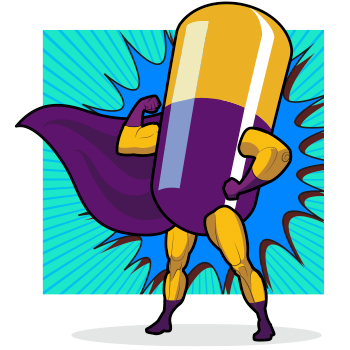
Famous athletes like Alex Rodriguez and Lance Armstrong have kept the use of performance enhancing drugs (PEDs) a hot topic in sports and media. Why do so many athletes fall from grace due to the use of PEDs? It’s hard to resist the lure of a “quick fix” or “magic pill” that promises to quickly repair injuries or launch athletes to the next level of competitive sport. The average Joe can also fall victim to these scams. If a testosterone supplement can help build muscle or boost a man’s libido, then why not go for it?
Unrealistic expectations and a lack of understanding of the risks inherent in taking any drug or supplement can lead to impulsive decisions. Decisions that bring long lasting, life-changing consequences to that person’s quality of life. The pharmaceutical industries (both legitimate and black market) play upon our insecurities in order to sell more products. Famous athletes and other “role models” that use performance enhancing drugs only compound the problem and add to the appeal.
Just last year Jack3d, a workout supplement, was linked to the deaths of two soldiers. A lawsuit filed on the soldiers’ behalf claimed the company failed to tell consumers about potential health risks, while at the same time marketing the supplement as “safe and effective.” I’ve written about many other healthcare scams that promise incredible results but conveniently ignore the risks.
So what to do? Unlike these drug companies, I can’t promise a quick fix. But I do think these steps could go a long way toward protecting consumers from false marketing claims and dangerous drugs:
- Consumers should use a critical eye when considering the use of a new drug or supplement. Remember, this is something you are putting in your body. If the claims sounds too good to be true, they probably are.
- Before taking any supplement or drug (even over-the-counter products), patients should talk to their doctor and make sure they understand the risks and potential benefits.
- The FDA should exercise more oversight of drugs-marketed-as-nutritional-supplements that currently fall into a regulatory “no man’s land.” The agency needs to act more quickly to remove these products from the market when there are serious questions about their safety.
As I have said many times in the past, pharmaceuticals and supplements are made to alter the body’s mechanisms and should only be taken by those that understand the risks. Even then, is it really worth it? Two of the premiere athletes of our time are weighing that question now. If you have been injured by taking performance enhancing drugs contact one of our experienced personal injury lawyers today for a free consultation.
